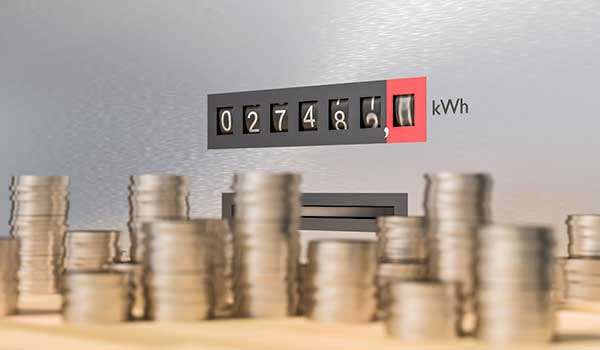Texans can shop around for the best electricity rates thanks to the state’s deregulated market. There are many electricity providers that offer low pricing and claim to have the cheapest electricity rates.Texans can shop around for the best electricity rates thanks to the state’s deregulated market. There are many electricity providers that offer low pricing and claim to have the cheapest electricity rates.
So how do you find the best plan for your specific situation? It’s simple when you follow our guide to sort through the competition and save money. A few minutes of reading and investigating, and you could soon be enjoying lower rates and cheap electricity in Texas.
How to Find the Best Electricity Rates in Texas?
Energy deregulation in Texas means retail electricity companies can bid to supply electricity in competition with other retail electricity companies. Many Texas cities are in designated deregulated areas, including the Houston area, Dallas, Fort Worth, Waco, and more. However, not all zip codes in Texas offer energy choices and different energy plans.
Electric companies offer many different prices, and the best electric provider depends on several factors. Remember, the lowest rate may not be suited to your needs.
By understanding the energy market, your monthly usage, and your electric bill, you can quickly cut through the noise and find cheap electricity in Texas. (Note: We’re not covering natural gas energy bills in this guide.)
If your current contract is coming to an end, electricity companies may switch you to a different and more expensive electricity rate when your contract runs out. If you’re about to move, contact your current electricity supplier and check if you can move your bill to your new home without incurring charges. It’s also helpful to get the last 12 months of energy use for your new home, so you can compare plans.
Understanding Your Electricity Bill
Knowing your way around your bill is probably the most crucial part of your journey to cheap electricity. But, first, you need to understand your usage levels so you can compare energy providers.
Many energy companies list electricity prices in kilowatt-hours (kWh). Your average monthly usage should be listed on your latest electricity bill. If you’re unsure, contact your energy supplier.
For reference, the average U.S. residential electricity use in 2019 was 877 kWh per month, lower than the 1,140 kWh in Texas. Energy rates vary across the United States, according to the Energy Information Administration (EIA). In the same year, the average bill was $115 a month nationally and $134.07 in Texas. In February 2021, the average electricity price per kilowatt-hour (kWh) was 13.34 cents nationally and 12.74 cents in Texas. It’s easy to see why finding cheap electricity is important as you could save yourself hundreds of dollars.
Still, finding the best deal for you is not as simple as looking at the kilowatt-hour price. Some companies may publicize a low kilowatt-hour price, but only if you are an extensive electricity user. Others may offer a low initial rate that then rises as well as costly early termination fees, so you cannot avoid the higher rates.
Along with knowing your monthly kilowatt-hour usage and price, it’s a good idea to contact your current energy provider and request your current plan’s total electric rate per kilowatt-hour (kWh). Ask them to provide a rate based on a 1,000 kWh average usage (not including taxes or non-recurring fees), so you can make easier price comparisons.
It’s essential to check your current contract for any early termination fees if you decide to switch. Also, think about your lifestyle and plans as well as your electricity use.
What Types of Electricity Plans Are Available in Texas?
There are many types of electricity plans in Texas, each designed to meet various lifestyles.There are many types of electricity plans in Texas, each designed to meet various lifestyles.
Fixed-Term Plans: Also known as fixed-rate plans, these provide price protection. Your kilowatt-hour price remains the same throughout the contract. Still, if you don’t meet certain conditions such as minimum usage, it could increase. Fixed-rate plans often include early termination fees.
Variable-Rate Plans/Month-to-Month Plans: These plans are flexible with kilowatt-hour pricing that can go up as well as down. Some offers start at a low price then switch to a higher one while others may lower prices when there’s excess electricity production. Shop carefully: Texans with variable rates experienced exceptionally high electricity prices during the February 2021 winter storm. Electricity production couldn’t meet demand, and many areas suffered power outages. Variable plans often don’t have long-term contracts or cancellation fees but always double-check first.
Prepaid Plan: In this type of plan, you pay in advance for electricity and use it as you go. This way, you use only as much energy as you need and only pay for what you use. These can be more expensive per kilowatt-hour than other plans but should require no deposit. In addition, power can often be turned on the same day, and some plans do not require credit checks.
Time of Use (TOU): Free electricity! Not quite, but some energy companies offer free electricity during predetermined times while you pay a set price the rest of the time. TOUs are attractive to people who know how and when they use electricity or can take advantage of lower rates, such as at night.
Renewable Plans: These plans generally mean that the provider offsets your electricity use with renewable energy credits from electricity generated from renewable sources like solar, wind, or geothermal.
Solar Plans: Homeowners with solar panels on their property may push excess electricity they generate back into the grid. In return, utility companies give them bill credits to put towards electricity use at night time.
Pay-As-You-Go: Similar to prepaid plans, pay-as-you-go is just as the name suggests. It’s ideal for people with smart meters fitted in their properties.
Average Billing: Utility companies use a year of your energy usage (or more) and divide it by 12 to give you an average monthly bill. You then pay this amount each month, spreading the cost of your electricity. Average billing helps people, for example, who may use a lot of electricity in the summer with air conditioning but less electricity in the winter with natural gas for heating.
Indexed Plans: Similar to a variable rate, an indexed-rate plan price fluctuates but is usually linked to a public index. Be sure to ask how and when the energy company notifies you of changes.
Power to Choose Electricity Provider
Now that you know your electricity usage and the various plans available in deregulated areas, it’s time to look at different energy plans. Not all locations are deregulated, and these communities are served by municipalities, cooperatives, or investor-owned utilities.
Where the market is deregulated, choosing a supplier is mandatory in Texas. The state-operated ERCOT council assigns a supplier if customers do not select one.
The Public Utility Commission of Texas, also known as the PUC or PUCT of Texas, protects customers, oversees market competition, and ensures high-quality service delivery. The PUC has set up the powertochoose.org website — available in Spanish and English — to help people in deregulated areas search for energy providers and find the best electricity plan for their needs.
Powertochoose.org instantly compares Texas electricity company rates and energy plans in deregulated areas.
Using the Power to Choose Website
Check your zip code on powertochoose.org to find out if you live in a deregulated area.
If yes, you can narrow your search. Questions include your household’s average monthly electricity usage, which type of rate (fixed, variable, or indexed), and term length.
The website will display a wide range of energy companies and prices. In addition, the left-hand sidebar allows you to customize your search filter.
Remember, in February 2021, the average electricity price per kilowatt-hour (kWh) was 13.34 cents nationally and 12.74 cents in Texas. Use these figures to help give you some perspective when looking at rates from various electric providers.
Example Energy Plan Search
To help you in your quest for cheap electricity in Texas, we did a sample energy plan search. We searched for a 12-24 month fixed-rate contract for Fort Worth, zip code 76006. Please note that this was for May 2021, and all prices and information are subject to change.To help you in your quest for cheap electricity in Texas, we did a sample energy plan search. We searched for a 12-24 month fixed-rate contract for Fort Worth, zip code 76006. Please note that this was for May 2021, and all prices and information are subject to change.
The cheapest offer was:
- 24-month contract, fixed rate
- Prices as low as 8.6 cents per kilowatt-hour for 1,000 kWh a month
- Down to 8.2 cents for 2,000 kWh monthly use for a 24-month contract
- 15% of the energy from renewable energy sources
- A $135 cancellation fee
Be very careful with these initial findings. Some companies charge a lot more if you don’t use the agreed amount of electricity and can be very strict on exact use. Check our Power to Choose user guide for more help.
Many of the deals have catchy names like “smart secure” or “green energy plans.” Read the details of each offer, which is available on the Electricity Facts Label (EFL), before signing up for anything.
What Is an Electricity Facts Label?
After completing a search, always check the “Fact Sheet” and “Terms of Service’” link to the right of the offer. Terms of Service provides a detailed description of the plan.
The Fact Sheet is what is more commonly known as an Electricity Facts Label (EFL). An EFL shows specific details of the plan so people can easily compare offers. It’s vital to read these because they often contain clauses and conditions that could cost you money in the long run.
These include:
- The price (energy charge) represents the price, in kilowatt-hours, of electricity used.
- Base charges, which is a fixed monthly fee. The base charge covers the cost of delivering the service (electricity).
- Any delivery charges and cost of maintaining the delivery network.
- Type of plan, e.g., fixed-rate, variable-rate, or indexed, contract length, and expiration date.
- Any early termination/cancellation fees. Companies offer low prices so that people fulfill their contract — cancellation fees protect them.
- Contract breach charges.
- Payment methods accepted.
- Any other charges, fees, and taxes.
Electricity Facts Labels list the average price per kWh in your area for 500, 1,000, and 2,000 kWh to help you compare plans.
Switching Electricity Companies in Texas: How to Switch and Save Money
Be aware that when your current energy contract is running out, your supplier may switch you to a more expensive rate. Your new electric provider will help with switching supply, including cancellation. Almost all switches are concluded over the phone. Therefore, the power supply shouldn’t be affected, and no representatives need to visit your home.
Don’t forget that you can also contact your energy broker directly and ask them for a better deal to save you from switching companies, too.
You have rights per the Public Utility Commission:
- You can cancel your contract within 14 days of it ending without penalty.
- Watch out for “slamming,” which occurs when energy suppliers switch your service without authority.
- Keep an eye out for “cramming,” which is the illegal addition of charges to your bill.
If you have any doubts, contact the Public Utility Commission’s (PUC) Customer Protection Division toll-free at 1-888-PUC-TIPS (1-888-782-8477) or visit its website.
Enter your ZIP Code and compare electricity rates
Getting Cheap Electricity Rates
Before switching, go through this Power to Choose checklist and FAQ section to make sure you’re making the best choice possible for your budget and lifestyle.
Deregulation of the Texas electricity market means millions of people can enjoy cheap electricity and potentially save hundreds of dollars a year. Switching providers is relatively straightforward once you understand your electricity bill and energy use. Always carefully read the details and exercise your power to choose the right provider for you.
Brought to you by energysavings.com
All images licensed from Adobe Stock.
Featured image:




